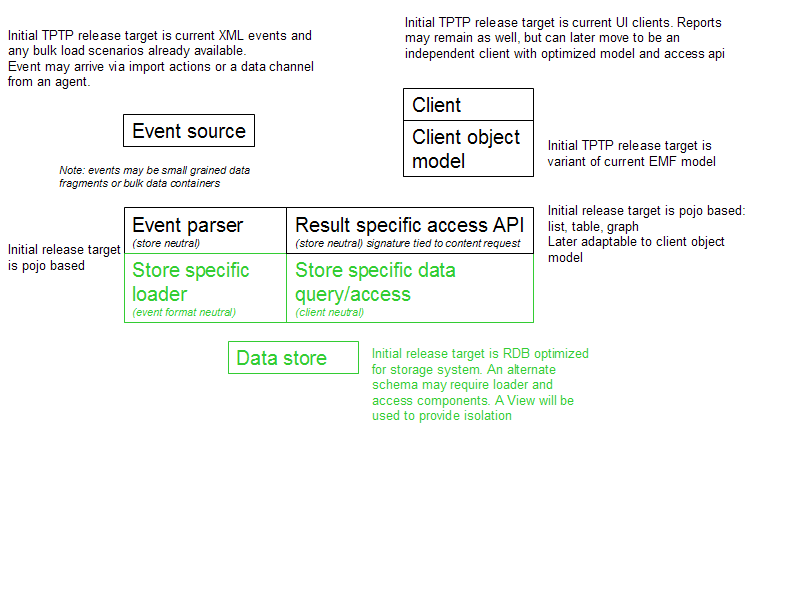Notice: this Wiki will be going read only early in 2024 and edits will no longer be possible. Please see: https://gitlab.eclipse.org/eclipsefdn/helpdesk/-/wikis/Wiki-shutdown-plan for the plan.
TPTP DMS
Contents
TPTP DMS
Requirements Overview
High Level Structure
This image shows a very high level rendering of the runtime components involved in the data flow through the data management services of TPTP.
The following gives an overview of each component in this block architecture.
Event Source
An event source is nothing more than a data provider to the loader. In TPTP this often thought to be an agent, but even though that may be where an event originated, the event source in context of this discussion is the input stream to the loader. There is an implicit contract between the event source and the loader that the data provided is consumable by the loader, however since the transport layers available in TPTP are nothing but a transport service this contract is delegated to the data source pushing data into the transport. TPTP maintains a set of specifications for event formats it can create, transport and consume. These events will continue to be extended in TPTP as the need arises. Prior to 4.4 events were small and incremental. In 4.4 bulk events will be introduced. These already in effect exist in the form of a "large" XML stream of already known events, wrapped in some sort of envelope. This is how the current trace file import works. In 4.4 we will make this more scalable from a transport and loader perspective. The design is not complete but may include options of simply passing a Uri to an batch resource of a known format. Also under consideration is embedding and CSV stream. This is not really an event source specific issue, however it is mentioned here to prevent any assumption about the structure or format of the data that may arrive through the stream.
Event Parser
filler
Store specific loader
filler
Data store
filler
Client
filler
Client object model
filler
Result specific access api
filler
Store specific data query/access
filler

